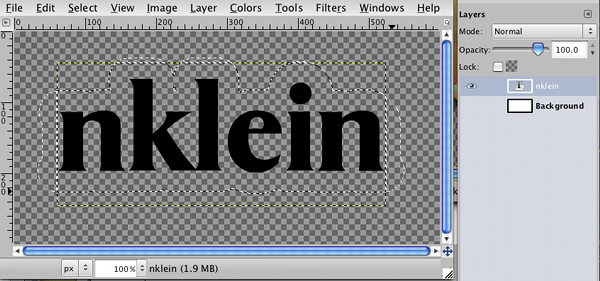At the TC Lispers meeting tonight, I will be giving a little presentation about weblocks. Here are slides for that presentation.
ps. if you’re in range, come to the meeting… Common Roots Cafe in Minneapolis.
At the TC Lispers meeting tonight, I will be giving a little presentation about weblocks. Here are slides for that presentation.
ps. if you’re in range, come to the meeting… Common Roots Cafe in Minneapolis.
On Monday, I am giving a lightning talk at the TC Lispers meeting about my Common Lisp Growl client library.
Here are the slides with presenter notes and the accompanying sample code.
The C++ template classes that I wrote years ago have been one of the most consistent draws to my my website. Every time I check the search terms that brought someone to my site, there are always a few hits for Clifford algebras.
I just received some email today from Mijail Guillemard at the University of Hamburg saying that he extended my Clifford algebra classes and is using them to do feature separation and classification for signal processing.
A few years back (for a very generous few
), we needed to parse a wide variety of XML strings. It was quite tedious to go from the XML to the native-language representations of the data (even from a DOM version). Furthermore, we needed to parse this XML both in Java and in C++.
I wrote (in Java) an XML parser generator that took an XML description of how you’d like the native-language data structures to look and where in the XML it could find the values for those data structures. The Java code-base for this was ugly, ugly, ugly. I tried several times to clean it up into something publishable. I tried to clean it up several times so that it could actually generate the parser it used to read the XML description file. Alas, the meta-ness, combined with the clunky Java code, kept me from completing the circle.
Fast forward to last week. Suddenly, I have a reason to parse a wide variety of XML strings in Objective C. I certainly didn’t want to pull out the Java parser generator and try to beat it into generating Objective C, too. That’s fortunate, too, because I cannot find any of the copies (in various states of repair) that once lurked in ~/src
.
What’s a man to do? Write it in Lisp, of course.
Here’s an example to show how it works. Let’s take some simple XML that lists food items on a menu:
We craft an XML description of how to go from the XML into a native representation:
Now, you run the parser generator on the above input file:
This generates two files for you: types.lisp
and reader.lisp
. This is what types.lisp
looks like:
I will not bore you with all of reader.lisp
as it’s 134 lines of code you never had to write. The only part you need to worry about is the parse
function which takes a stream for or pathname to the XML and returns an instance of the menu
class. Here is a small snippet though:
I currently have the parser generator generating its own parser (five times fast). I still have a little bit more that I’d like to add to include assertions for things like the minimum number of elements in an array or the minimum value of an integer. I also have a few kinks to work out so that you can return some type other than an instance of a class for cases like this where the menu
class just wraps one item.
My next step though is to get it generating Objective C parsers.
Somewhere in there, I’ll post this to a public git repository.
Yesterday, I decided to make the images in my article look like they were on old, burnt paper. I did this manually in the GIMP.
I liked the effect, but I didn’t want the tedium of having to do all n steps manually next time I go to use it. So, I wrote a GIMP plugin script to do it.
Here is an example of the plugin script in action. As you can see, I started with a text layer and a selection that was bigger than the text layer. The plugin uses the selection size as original edge of the paper (original, as in before the paper was burned).

And, here is the resulting image:

Here is the Burnt Paper plugin script. Plop this in a directory that’s in your script search path and refresh GIMP’s scripting and then you’ll find it in the Filters > Decor
menu. [You can see the script search path by going to Edit > Preferences
and selecting Scripts
under Folders
in the left sidebar. And, you can refresh the scripts by going to Filters > Script-Fu > Refresh Scripts
.]